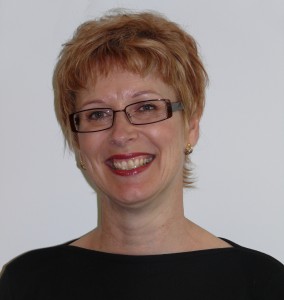 By the time I taught my first medical students, I was already an experienced schoolteacher and well used to frank, and occasionally uninhibited, feedback on my performance from my young students. There was Elliot, who, if he wasn’t allowed to run about the classroom, could often be found fast asleep under a desk; Izzy, who once threw a chair at me; Alice, who loved storytime so much she invariably ended the session snuggled comfortably on my feet; and Danny, who spat in my handbag but later sent me a Christmas card.
By the time I taught my first medical students, I was already an experienced schoolteacher and well used to frank, and occasionally uninhibited, feedback on my performance from my young students. There was Elliot, who, if he wasn’t allowed to run about the classroom, could often be found fast asleep under a desk; Izzy, who once threw a chair at me; Alice, who loved storytime so much she invariably ended the session snuggled comfortably on my feet; and Danny, who spat in my handbag but later sent me a Christmas card.
Medical students, I reasoned, would be much the same—if a little more polite about it. As professional trainees as well as paying students, they will expect a great deal from their education; and they will make it plain if they don’t understand or disagree with you. After all, I thought, they’re in training to become self-directed and initiative seeking learners, so a bit of “attitude” was only to be expected if I failed to respond to their needs.
Nevertheless, I’ll be frank: I was a little nervous on that first morning. I wasn’t expecting anyone to spit in my handbag, but if these third year medical students didn’t like my teaching session would they be . . . sarcastic? Would they complain? Would they simply leave?
Well, I needn’t have worried; everything went fine. Almost too fine. Far from being the self-directed, challenging, and even bolshie learners I had expected, the students sat in silence for the first half hour, listening very carefully and respectfully. I could hardly get a word out of them. Then came the polite questions: “What do we have to do to pass this module?” “How much work do you want us to do?” “Where can we find the materials?” “What is the final assessment like?”
I realised very quickly that I was being pleasantly but expertly sized up by these astute young people. What sort of teacher was I? What did I expect of them? And, most importantly, how could they give me back what I wanted in order to pass the course?
I had simply never experienced anything like it; these students were waiting to be told what sort of learners I wanted them to be. I was faintly shocked to realise that, through their own desire to excel, they had actually handed complete control of the teaching session over to me. Constrained by their own ambitions, they would be self-directed and questioning if that was what I wanted; but if not, they would sit respectfully and let me spoonfeed them. I realised with amazement that if I had demanded that they lie around on the floor with their socks off listening to Wagner, they would probably have been prepared to do it if it meant they could pass the course. Moreover, it seemed to me that they would almost certainly do it to the best of their ability in the (in this case, misplaced) faith that I knew what I was doing.
Medical students are rare and precious people and it is a privilege and an honour to teach them. They trust their teachers to teach them whatever will help them reach their ultimate goal, which is to be a good doctor. In so doing, they hand us an enormous amount of power and control over their lives and their futures. They want to be the best medical students and doctors they can be: it is up to us not to misuse that trust. We can reward their faith in us by trying to become the best medical educators we can be.
Julie Browne is currently external relations manager at Wales Deanery. She was previously managing editor of two medical education journals, is co-author of a book on medical education, and she is an elected council member and trustee of the Academy of Medical Educators.
Competing interests: The author has no competing interests to declare.